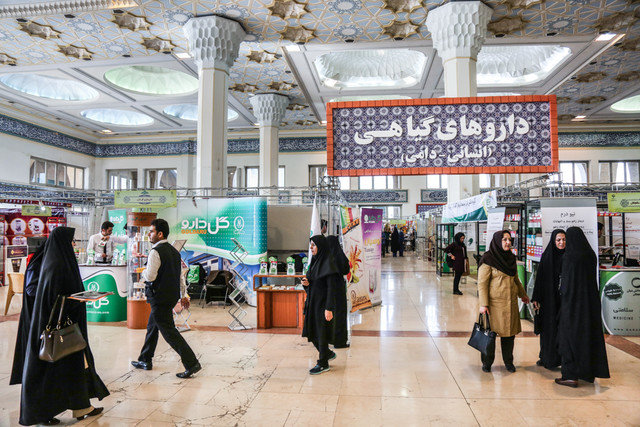Selling crude medical herbs should be prevented: VP

TEHRAN -- Iran should prevent exporting medical herbs in crude shape just like [limiting] sales of crude oil, the vice president for science and technology Sourena Sattari said on Monday, Mehr reported.
“Through production of herbal medicine, herbal pesticides, and fertilizer, we can create added value in this field in the country,” he explained.
Sattari made the remarks during his visit to the 4th festival of medicinal herbs, natural products, and traditional medicine, which is currently underway at Tehran’s Imam Khomeini Mosalla.
Nothing including sanctions can stop Iranian young generation, he said.
The self-confident young human resource in Iran can add value in Iran’s economy, he continued.
“We do hope that more innovative companies are created by the young entrepreneurs in the country,” he said.
The human resource can have a great influence on economy, culture, and industry, he said.
Sattari called the knowledge-based economy as one of the most important priorities of the cabinet.
He stressed the need for development of knowledge-based companies through support of the private sector.
“For example 93 percent of saffron is produced in Iran however less than 10 percent is processed in the country,” he lamented.
It indicates that Iran suffers problems in commercialization of agriculture, he continued.
The 170 knowledge-based companies active in medical herb industry are influential in value added chain, he said.
Iran enjoys different species of medical herbs. For example, there are more than 2,000 species of medical herbs are grown in the western Kohgiluyeh and Boyer-Ahmad province, he explained.
Such a great range of medical herbs is a great potential for entrepreneurship for young generation, he said.
About 170 knowledge-based companies, 550 innovative firms, and 551 companies from the private sector have attended the event.
The festival aims at introducing the latest scientific and industrial achievements in the technological products of medicinal plants in order to shift from an oil-based economy, and remove the barriers and challenges the development of the medicinal plant industry is facing.
SB/MG
